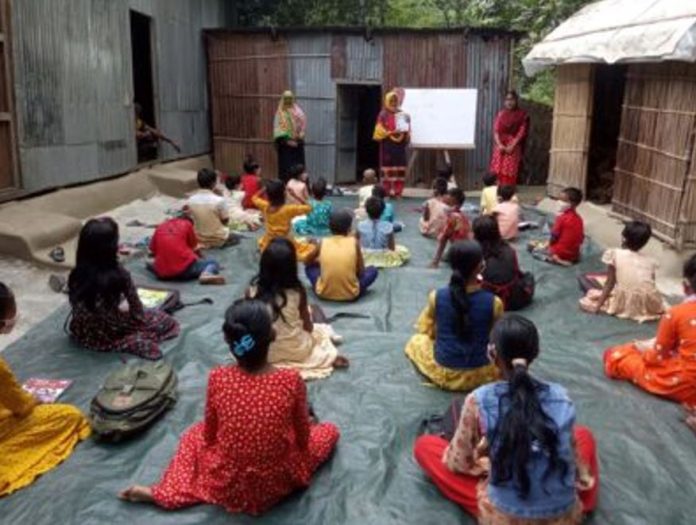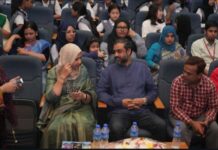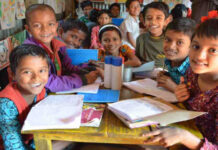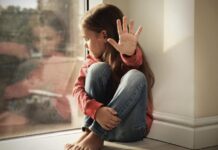
Roton Malo:
Educational institutions remained shut for over one and half year in Bangladesh putting millions of students out of their classroom but some innovative adolescent girls have come forward in their own localities and started teaching primary students at Chilmari sub-district in Kurigram in Bangladesh’s northern region.
School children from underprivileged families have started bracing for yet another round of uncertainties in education especially in villages thanks to the third wave of the pandemic. A lot of girl children were married off early while hundreds of schoolboys were involved in wage-earning jobs at childhood.
In this circumstance, a number of adolescent girls of ‘Sawpnachura Kishor Kishori Club’ have been the pioneer by keeping school children busy and active in education while the whole country is put under strict movement restriction due to COVID-19 pandemic.
Romana, Meghna, Mou, Roksana, Sultana and Rubel are the key members of the club who have been appraised by locals for their noble initiative. These bright teens of Sawpnachura Kishor Kishori Club have opened a free school from 3pm to 5pm for children. The lifesaving initiative, supported by World Concern Bangladesh has opened the door of education for underprivileged school children in rural Bangladesh.
Laiju Akhter, president of the Sawpnachura Kishor Kishori Club, supervises the classes for school-children at their innovative afternoon school. A total of 60 school from playgroup to class V are being taught at the school.
Guardians of the children said the afternoon school by the club girls have saved their children from drop out and kept the light of education alive in the village. They offered heartfelt gratitude to the World Concern Bangladesh for its support to Sawpnachura Kishor Kishori Club for taking such a noble initiative.
Appreciating the school, Amena Begum, Airin Akhter, Monowara Khatun, Mahmuda and Repuna, whose children are getting free education, said the club girls have kept their hope alive during the ongoing pandemic by teaching their children.
They also said that their children attend the classes in different shifts in the afternoon and all of them maintain 3-feet distance to avoid the coronavirus infection. Our children will not drop out from school for the initiative and their education, they added.
COVID-19 Situation in Bangladesh:
Bangladesh has been going through the third wave of coronavirus pandemic and reported 5,869 new cases and 108 lives in the span of only 24 hours until 25 June 2021. The country has recorded a total of 878,804 Covid-19 cases and 13,976 deaths till the date.
Strict lockdown imposed:
Bangladesh has imposed a nationwide strict lockdown from Monday (28 June 2021). The strict movement restriction will remain effective until further notice.
All the public and private offices except emergency services will be remained closed during the lockdown period while the movement of all modes of transport except the emergency cargo will remain suspended.
Only ambulance and other medical service transport are allowed to move during this restriction. No one will be allowed to come outside of the houses without any emergency. The mass media will remain out of this purview.
Education in Bangladesh During Pandemic:
A study jointly conducted by Power and Participation Research Center (PPRC) and BRAC Institute of Governance and Development (BIGD) of BRAC University, shows that 19% of primary and 25% of secondary school-going children are at risk of learning loss due to the shutdown of educational institutions since March 2020.
The telephonic survey also shows that only 10% of students had access to distance learning opportunities after school closure. Only 2% of students could view the classes aired by the government-owned TV channels.
The study reveals that at least 8% of schoolboys and 3% of schoolgirls were engaged in some form of income-generating activities during the pandemic.































